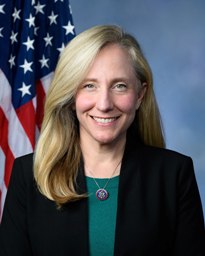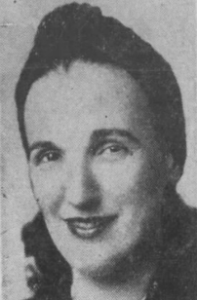Abigail Spanberger and a History of Women Gubernatorial Candidates in Virginia
Only three women have appeared on a major party primary or general election ballot for governor in the state

Rep. Spanberger is the first major party candidate to officially enter the race for governor in a state Democrats hope to flip after generally faring well in the 2023 state legislative contests held last week.
Virginia is one of 20 states yet to elect a woman to the governorship and one of 18 that have never had a woman serve in the office.
[Recent states to get off that list include three in 2018 – Iowa (Kim Reynolds), Maine (Janet Mills), and South Dakota (Kristi Noem) – and three in 2022 – Arkansas (Sarah Huckabee Sanders), Massachusetts (Maura Healey), and New York (Kathy Hochul)].
Spanberger plans to add her name to a fairly short list of women who have put their name before Virginia voters for the office of governor.
The first woman to run for governor in Virginia was Daphne (Mrs. George) Custis of Fuller in 1921. Custis, a 33 year-old native Virginian, ran as an Independent Socialist and placed a distant third in the three-candidate field with just 0.1 percent of the vote.
Twenty years would pass before the next woman sought the governorship.

Burke was arrested in mid-September 1941 on fugitive charges at the request of Birmingham, Alabama authorities. She had been convicted in Birmingham eight years prior for disorderly conduct by speaking without a permit. Burke was released in mid-October after the forfeited bond was settled.
Burke won 0.9 percent in the general election – good for third place in a four-candidate field, besting the Socialist Party nominee.
It would be more than 40 years until the next woman ran for governor.
In 1993, sitting Democratic Attorney General and former State Delegate Mary Sue Terry was the first – and to this day only – woman to win the gubernatorial nomination by a major political party.
After eight years in the House of Delegates, Terry was elected Attorney General in 1985 and 1989 and was unopposed for the Democratic nomination for governor in 1993.
Terry won only 40.9 percent in the general election against freshman U.S. Representative George Allen en route to a 17.4-point loss.
Also appearing on the general election ballot that cycle was independent candidate Nancy Spannaus from Lovettsville.
Spannaus was a 50 year-old Lyndon LaRouche adherent and editor of The New Federalist, a weekly political newspaper founded by LaRouche who was in federal prison for wire and tax fraud. [Spannaus’ husband was also sentenced to prison for wire and tax fraud related to LaRouche’s campaign fundraising in 1989].
Spannaus won 0.8 percent that cycle in a campaign book ended by independent U.S. Senate bids against GOP U.S. Senator John Warner in 1990 (winning 18.2 percent) and 2002 (9.7 percent). Warner faced no major party opponents during those cycles.
Four years later, Dillons Fork resident Sue Harris DeBauche won the Reform Party nomination.
DeBauche was a 52 year-old freelance business manager and accountant and received 1.5 percent in the 1997 race won by Republican State Attorney General Jim Gilmore.
Three women appeared on the primary or general election ballot for governor of Virginia in 2021:
- Richmond activist and educator Princess Blanding won 0.7 percent as the Libertarian nominee in the general election
- Former two-term State Delegate Jennifer Carroll Foy placed a distant second behind Terry McAuliffe in the Democratic primary with 19.8 percent
- Two-term State Senator and former six-term Delegate Jennifer McClellan placed third in the Democratic primary with 11.8 percent
The 2025 cycle might see more than one woman in the race as controversial State Senator Amanda Chase is considering a bid for the GOP nomination. Chase, who left the GOP Senate caucus a few years ago, launched a campaign for governor in 2021 but placed third out of seven candidates at the state Republican nominating convention. Former Roanoke City Sheriff Octavia Johnson was a also a candidate at the 2021 convention.
One would also expect Spanberger to receive a challenge from the left in the Democratic primary.
Follow Smart Politics on X/Twitter.

“…18…woman *serve* in the office” Olene Smith Walker (UT) and Nancy Elizabeth Putman Hollister (OH) served in their respective states, though only the former later stood for election in her own right in 2004 (losing to future ambassador Huntsman, Jr). As well, “Kathy” Hochul – who initially *ascended* to the post in 2021 – came somewhat close to joining the ‘served but not elected’ list (6.4% in her bid for full term).
It seems plainly obvious that Spanberger is no less fed-up with the present state of the chamber than many of her colleagues who have chosen to call it a day without having any ‘higher’ political aspirations. After all, she might have chosen to stand for re-election next year, and (presuming she won) then bid for governor without sacrificing her seat altogether, or resign from the House after securing the nomination in 05 or 06 of 2025.
[…] charges from Alabama, where she’d been charged with speaking without a license, according to Smart Politics. I wrote about Burke several years ago when I was with The Roanoke Times. She holds the distinction […]